How Does The Biological Clock Tick? IELTS Reading Answers
4 min read
Updated On
-
Copy link
Table of Contents

Limited-Time Offer : Access a FREE 10-Day IELTS Study Plan!
The Academic passage ‘How Does The Biological Clock Tick?’ is a reading passage that appeared in an IELTS Test.
It contains some of the IELTS reading question types. If you are interested in familiarising yourself with all the question types, don’t hesitate to take an IELTS reading practice test.
How Does The Biological Clock Tick?
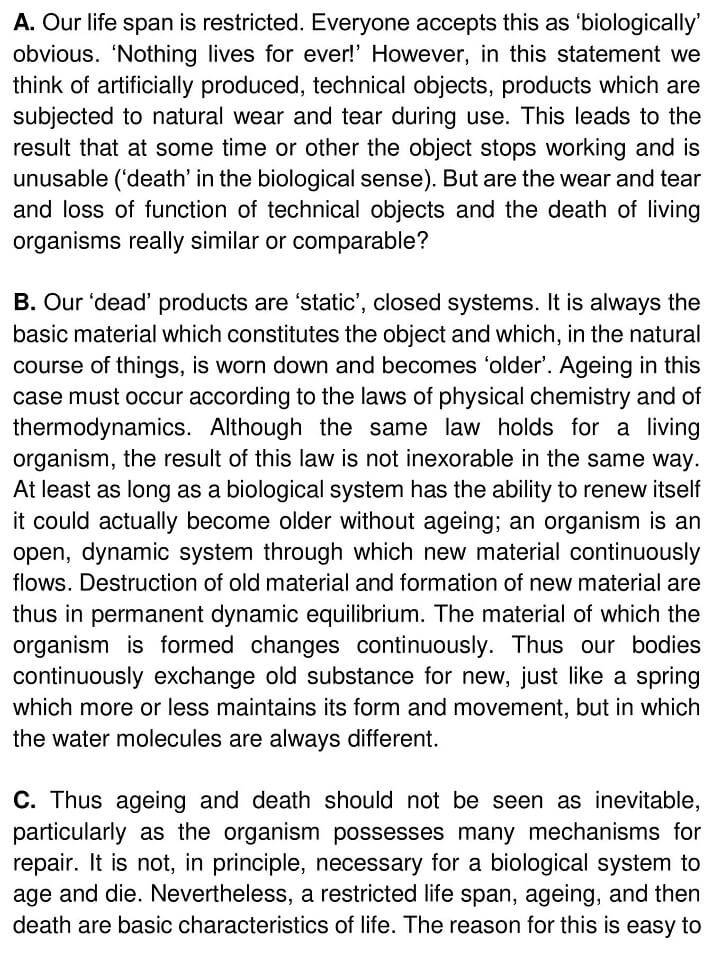
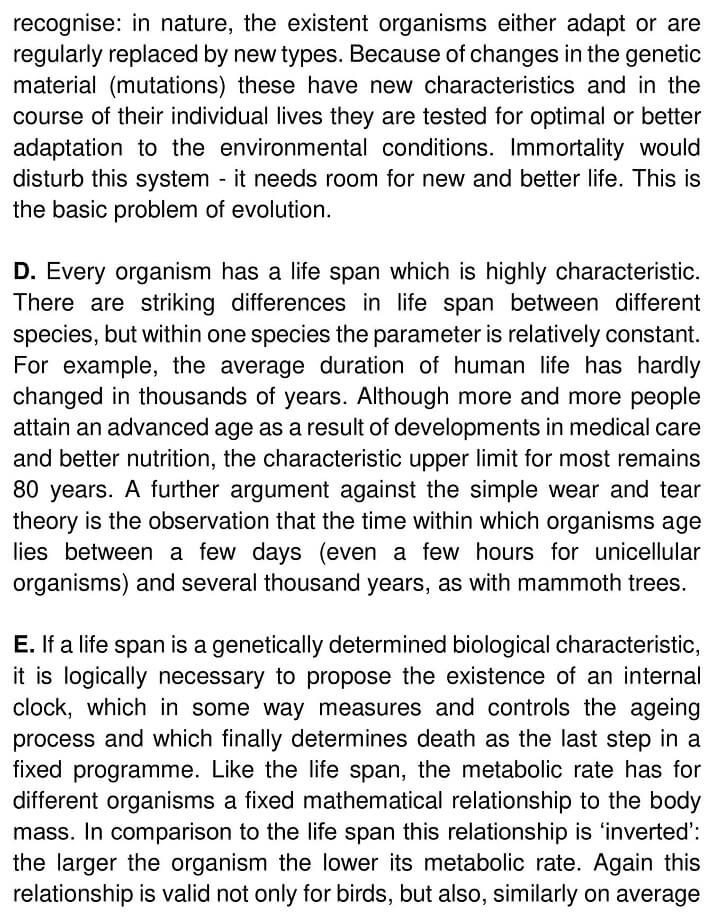
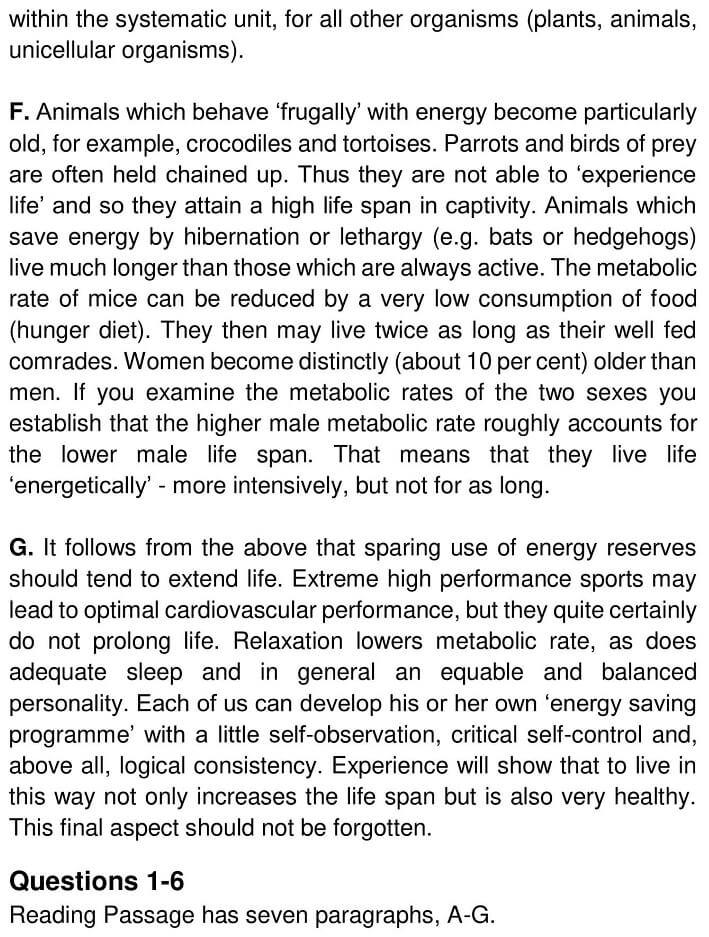
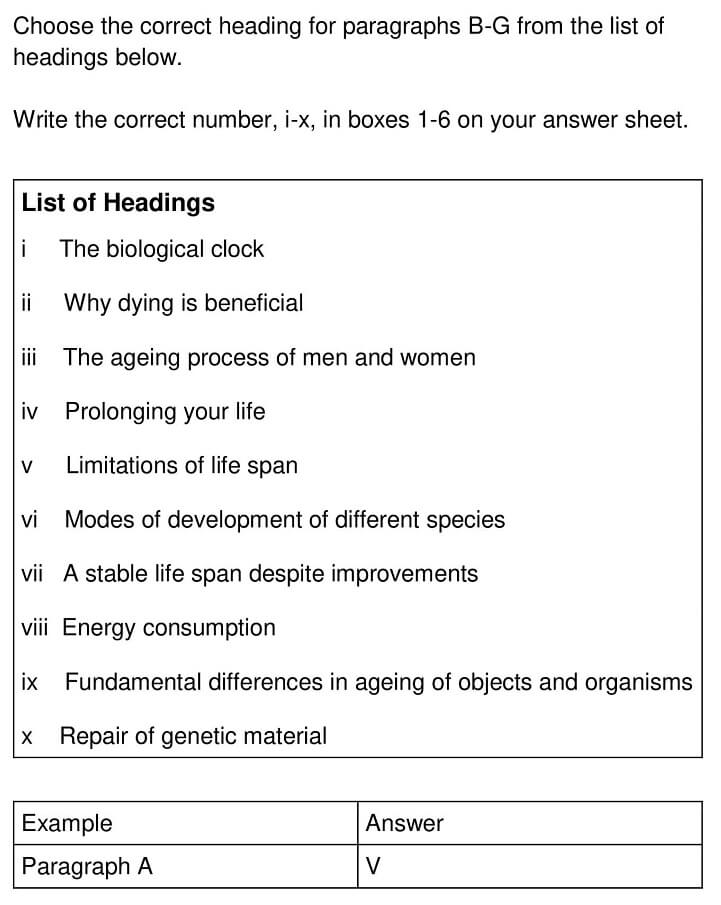
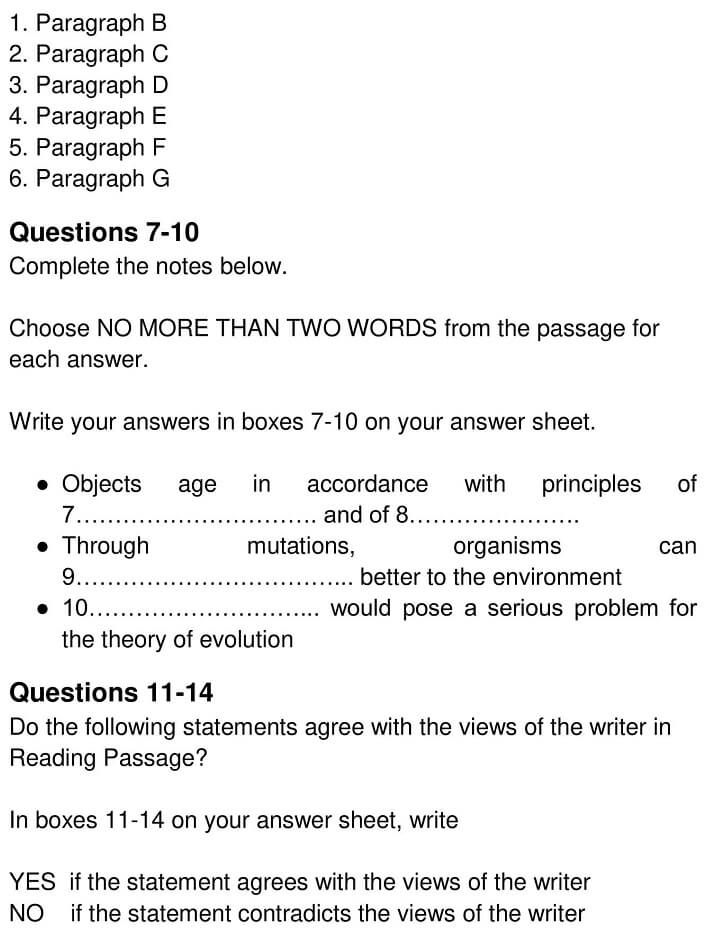
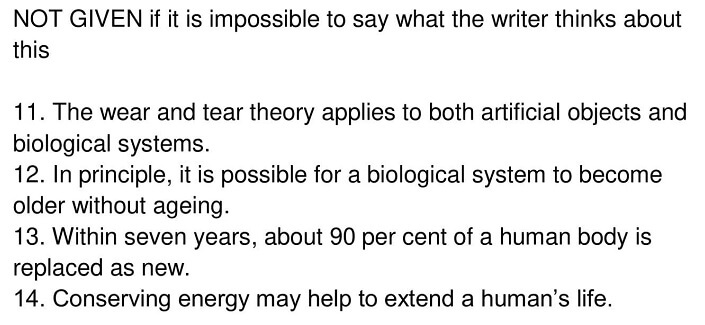
Answers
Unlock Answers
| Question number | Answer | Keywords | Location of keywords |
|---|---|---|---|
| 1 | ix | Although the same law holds for a living organism, the result of this law is not inexorable in the same way. At least as long as a biological system has the ability to renew itself it could actually become older without ageing; an organism is an open, dynamic system through which new material continuously flows. | Paragraph B;
Lines 3 – 4 |
| 2 | ii | Immortality would disturb this system – it needs room for new and better life. This is the basic problem of evolution. | Paragraph C;
Lines 6 – 7 |
| 3 | vii | Although more and more people attain an advanced age as a result of developments in medical care and better nutrition, the characteristic upper limit for most remains 80 years. | Paragraph D;
Line 4 |
| 4 | i | If a life span is a genetically determined biological characteristic, it is logically necessary to propose the existence of an internal clock | Paragraph E;
Line 1 |
| 5 | viii | Animals which behave ‘frugally’ with energy become particularly old, for example, crocodiles and tortoises | Paragraph F;
Line 1 |
| 6 | iv | It follows from the above that sparing use of energy reserves should tend to extend life | Paragraph G;
Line 1 |
| 7 | physical chemistry, thermodynamics IN EITHER ORDER | Ageing in this case must occur according to the laws of physical chemistry and of thermodynamics | Paragraph B;
Line 3 |
| 8 | physical chemistry, thermodynamics IN EITHER ORDER | Ageing in this case must occur according to the laws of physical chemistry and of thermodynamics | Paragraph B;
Line 3 |
| 9 | adapt | Because of changes in the genetic material (mutations) these have new characteristics and in the course of their individual lives they are tested for optimal or better adaptation to the environmental conditions. | Paragraph C;
Line 5 |
| 10 | immortality | Immortality would disturb this system – it needs room for new and better life. This is the basic problem of evolution. | Paragraph C;
Lines 6 – 7 |
| 11 | NO | But are the wear and tear and loss of function of technical objects and the death of living organisms really similar or comparable? | Paragraph A;
Last line |
| 12 | YES | At least as long as a biological system has the ability to renew itself it could actually become older without ageing; an organism is an open, dynamic system through which new material continuously flows. | Paragraph B;
Line 4 |
| 13 | NOT GIVEN | – | – |
| 14 | YES | sparing use of energy reserves should tend to extend life. | Paragraph G;
Line 1 |
Check More IELTS Reading Answers
Also check :
Practice IELTS Reading based on question types

Start Preparing for IELTS: Get Your 10-Day Study Plan Today!
Recent Articles

Nehasri Ravishenbagam

Haniya Yashfeen

Haniya Yashfeen

Haniya Yashfeen




Post your Comments